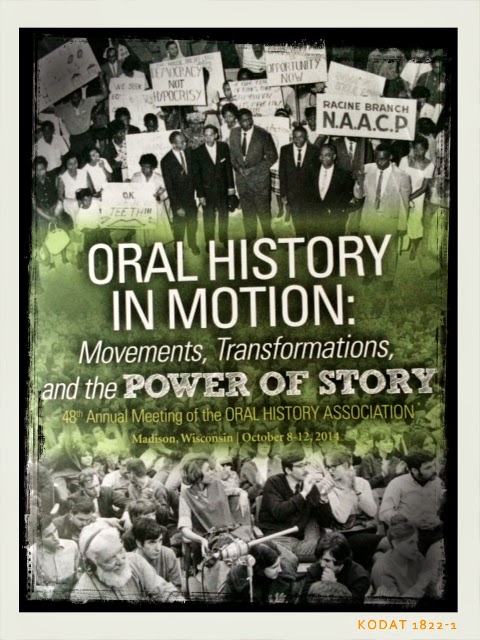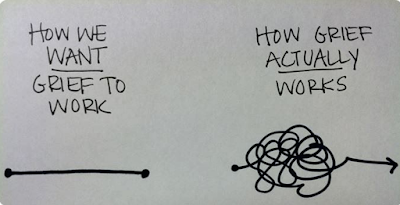Do You Have a Problem with the Word Failure?
People don't like to talk about failure. They prefer other terms. Challenges. Stumbling blocks. Hiccups. Preludes to success. Opportunities for growth. They embrace what my friend Elizabeth calls the perky reframe. (I got fired, but hey, I have a lot more time to devote to my popsicle stick collection.)
Most of all, they prefer you don't openly call something a failure.
Sound familiar, anyone? There are good reasons people shy away from labeling things, especially programs, projects or collaborative endeavors, failures. It can be embarrassing to admit. It may jeopardize your public image or compromise your legitimacy. For those of us who rely on grants, fellowships and donations, it might risk funding. If something with which we are involved fails, it is possible we ourselves will come off looking like failures.
Me, I don't trust people who can't talk openly about failure. It could be my experience with Irish history. The Irish ability to use, celebrate, even sanctify virtuous defeat is an impressive thing. It was an Irishman, Samuel Beckett, who penned one of my mantras:
Yes, we should allow ourselves to be humbled by failure and inspired to try again, try harder, be better. But there is more to it than that. Admitting failure is not giving up, throwing in the towel, being defeatist. It is not surrender. Admitting failure is pausing to reflect on why things are not going as planned and learning from that.
How can we hold the moment in which we become aware and genuinely reflective in relation to failure?
Here are some ways to hold the moment:

We're doing a roundtable called, "Failure: What is it Good For? " next week. So, what do we want to get out of it? To some extent, those of us participating have gotten a lot out of it already, in the preparation work developing case studies of failures and analyzing them alone and together. I can tell you that it is affirming and reassuring to talk with people whom you respect and admire about epic failures they've been a part of!
This is important for a lot of reasons. It takes the shame out of failure. And guess what, when you aren't so scared of failure, you can put yourself out there. You dare to take risks and you don't beat yourself up for an interminably long time when you do fail. You become resilient -- and resilience is the key to sustainability.
The other great thing was that when we all shared our stories of failed efforts, we were able to generate an intriguing list of situations, factors and triggers that can lead to failure. Some of these factors are shown here, in the form of a bingo chart:
Experts from the business and arts worlds seem to agree that fear of failure is one of the most frequent sources of paralysis. Todd Henry of Accidental Creative has this to say:
Most of all, they prefer you don't openly call something a failure.
Sound familiar, anyone? There are good reasons people shy away from labeling things, especially programs, projects or collaborative endeavors, failures. It can be embarrassing to admit. It may jeopardize your public image or compromise your legitimacy. For those of us who rely on grants, fellowships and donations, it might risk funding. If something with which we are involved fails, it is possible we ourselves will come off looking like failures.
 |
| quotation by Samuel Beckett |
How can we hold the moment in which we become aware and genuinely reflective in relation to failure?
Here are some ways to hold the moment:
Stopping long enough to acknowledge that we did not achieve what we hoped to achieve or that we achieved some goals at the expense of others, or at the expense of relationships or our principles. Being open to the uncertainties that accompany failure. Entertaining possibilities we had not considered before. Being uncomfortable. Dealing with the blinders that prevented us from doing things differently. Accepting our mistakes. Reaching out to stakeholders. Going a level deeper than "incompatibility" or "irreconcilable differences" to investigate the roots of difference. Considering the viability of our ideas. Being challenged to see and to think differently. Listening to ourselves and others. Not in the, "let's fix this kind of way," but in the, "I am open and willing to hear what you think, what you have observed, what you have experienced" way. Locating our weaknesses. Examining the structural, societal problems that stack the deck against success. Understanding that this wasn't the right time. Sitting with not knowing.

I believe that holding the space for failure is critical to engaged collaborative practice -- especially if our end game is social change. And I think we should do more of it. I for one know that I've been eager to gloss over failures, to rename them something else, to move on resolutely towards friendlier pastures, more conducive to easier success. In so doing, I've missed some really good opportunities to acknowledge the real difficulties and challenges of my work and to gear up for change.
When I proposed to discuss what we can learn from failures in public history collaborative partnerships at our annual conference of the National Council on Public History, I encountered a bit of resistance. "Why focus on what's not going well when so many things are going swimmingly?" "There's no such thing as failure." Luckily for me, some friends and colleagues in the field agreed with me.
We're doing a roundtable called, "Failure: What is it Good For? " next week. So, what do we want to get out of it? To some extent, those of us participating have gotten a lot out of it already, in the preparation work developing case studies of failures and analyzing them alone and together. I can tell you that it is affirming and reassuring to talk with people whom you respect and admire about epic failures they've been a part of!
This is important for a lot of reasons. It takes the shame out of failure. And guess what, when you aren't so scared of failure, you can put yourself out there. You dare to take risks and you don't beat yourself up for an interminably long time when you do fail. You become resilient -- and resilience is the key to sustainability.
Experts from the business and arts worlds seem to agree that fear of failure is one of the most frequent sources of paralysis. Todd Henry of Accidental Creative has this to say:
"When the perceived threat or potential consequence outweighs the perceived benefits of success, we stop acting...we can go for days, weeks, months, years, lifetimes without every really getting to the bottom of this fear. The result is that we forfeit our best work."
I for one can't wait to have a discussion about failure and how we learn from it. Check back here for updates on the discussion!
(P.S. The wonderful Marla Miller from UMass Amherst created a wonderful Storify of our panel. You can access it here.)










Thank you so much for this Margo, I have had a difficult week where 4 proposals and hopes came to naught and your article gives me pause. I will take time to reflect on what I have learned from each, one thing I can say about all of them is no regrets. I tried, I failed, but I opened myself up to possibility and that in itself is something to feel positive about.
ReplyDeleteOh, Vic -- I have a huge stack of rejected proposals, applications, you name it. As it grows, I know that even if my little corners of opportunity and influence feel quite minuscule, my imagined canvas for being, writing, sharing and creating with others does keep on growing. The day I let failure stop me is the day I stop being me. Love what you said about being open to possibility. And knowing that the right things do come, will come. And in the meantime, we keep trying…….
ReplyDelete